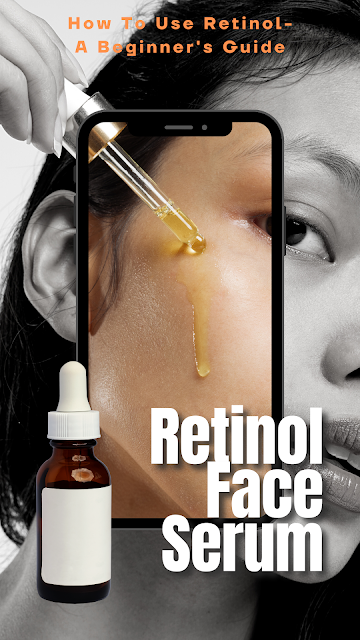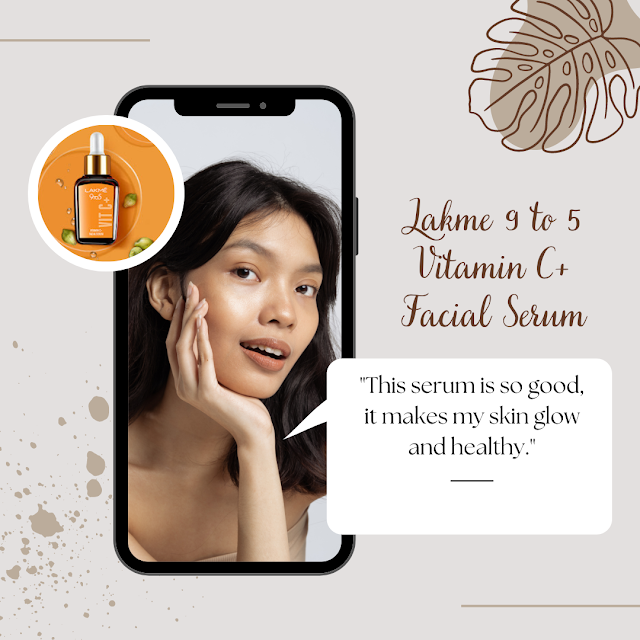 |
| Retinol Face Serum- Guide |
Retinol Face Serum: The Life-Changing Active Of The Year
WHAT EXACTLY IS RETINOL?
Retinol face serum is a popular choice among those who are serious about their skincare. But what makes it so unique?
- In a sense, retinol is a precursor of vitamin A. Retinol is often used interchangeably with Retin-A and Retinoid.
- Retinol is simply another sort of Retinoid in its purest form.
What's the distinction between the two?
- Retinol is a gentler and less concentrated form of Retinoid and is also widely available over the counter!
- The latter is frequently quite potent and necessitates the use of a prescription. The most used is Retin-A.
- The capacity of retinol to perform a multitude of tasks is what has made it a hit in the skincare field, from acne, blackheads, and whiteheads therapy to collagen stimulation.
- It also delays the aging rate of the gear.
WHAT IS THE GOAL OF RETINOL?
One of the few active ingredients in its class, retinol, can simultaneously address several issues. Most actives are effective at addressing one or two skincare concerns at once. Retinol can help with a variety of skincare issues if administered correctly.
Scientific studies have shown that topical use of retinol may improve blood flow in the skin and stimulate the formation of new blood vessels, resulting in the skin generating a revitalizing shine.
Retinol's amazing collagen-boosting qualities aid cell renewal while minimizing the appearance of fine lines and wrinkles.
One of the retinol's most underappreciated properties is its ability to treat acne. Most people are unaware that this activity acts on the middle and surface layers of the skin to help unclog pores and reduce blemishes. Acne-free skin Implies unclogged pores!
Because of its capacity to renew cells, retinol can treat pigmentation caused by acne or sun damage! Cell turnover aids in the removal of unsightly scars and smoothens the skin.
WHEN IS THE BEST TIME TO BEGIN USING RETINOL?
While you may have learned about retinol from your skincare-savvy mother, it may be effective at any age, especially if you wish to address skin issues such as dark spots, hyperpigmentation, acne scars, and psoriasis.
When noticing early signs of aging, it is preferable to begin taking retinol in your mid-20s or early 30s.
Retinol uses as a preventative measure before any signs of aging appear.
It should be part of your nightly skin regimen if you're in your 30s or older.
Individuals start to show signs of aging in their 30s. Includes wrinkles, seborrheic keratosis, pigmentary changes, and more
Retinol aids in the postponement of these unpleasant characteristics of aging.
HOW SHOULD ONE SELECT A RETINOL?
Retinol comes in many forms and intensities. If you're starting, stick to a modest proportion.
La Roche-Posay Redermic R is a great place to start because it includes only 0.3 percent. It's also an alternative for persons with sensitive skin.
The Ordinary Granactive Retinoid 2 percent in Squalane is also a good choice for newcomers and is very economical.
If you have experience using retinol, Medik8 Crystal Retinal 3 is an excellent choice.
Sunday Riley's A+ High-Dose Retinoid Serum, one of the most effective formulations available, is an exceptionally potent, supercharged serum that will deliver you results quickly.
HOW OFTEN SHOULD RETINOL BE USED?
Begin by applying retinol to your entire face every other night with a pea-sized dose.
Remember that it takes several weeks for your skin to acclimatize to the product, so start slowly and progressively increase your use as time goes on.
If your skin gets dry or sensitive, reduce the frequency to every third, or perhaps once a week.
ARE THERE ANY ADVERSE REACTIONS?
Unfortunately, retinol has Negative effects.
- However, these are minimized by selecting the optimal formula for your skin type and administering it correctly.
- Always start carefully with retinol in your skincare routine and gradually increase it as your skin grows more receptive.
- Begin by utilizing it in lesser dosages a couple of times each week at first.
- As you notice improvements and reduced discomfort, gradually raise the proportion – but be done over time.
- Retinol overuse can result in redness, irritation, and peeling.
- Remember to use sunscreen every day if you're using a retinol-containing product.














.jpg)









.png)

